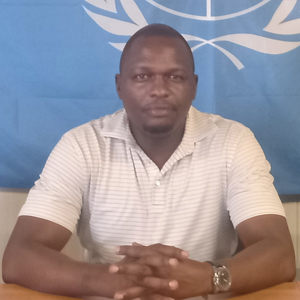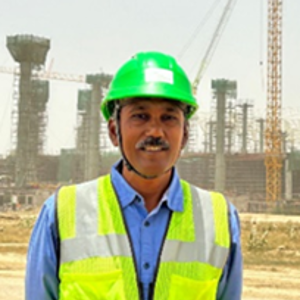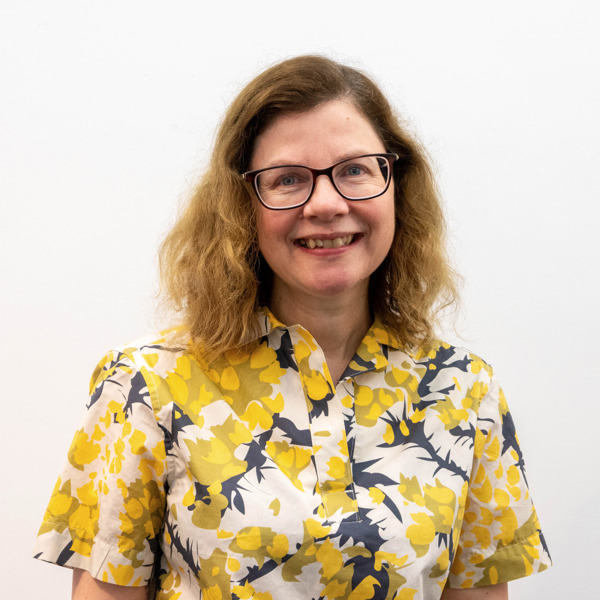Why I’m a mentor – and you should be too
- Date posted
- 18 October 2024
- Type
- News
- Author
- Ali Barlow
- Estimated reading time
- 4 minute read
What does a mentor look like? The answer is ‘you’. Mentors can be any age or membership grade and at any stage in their career. What are the benefits of being a mentor? Answers include professional development, personal growth and happiness.
We’re celebrating our IOSH mentors ahead of National Mentoring Day, which takes place on Sunday 27 October.
These volunteers make a real difference to their mentees’ careers and membership journeys. They also help strengthen the occupational safety and health (OSH) profession by sharing their knowledge and passion.
IOSH mentoring is free to all members, with three mentoring styles to suit different career stages, abilities and needs. These are career development, peer-to-peer and reverse mentoring.
We asked the people who help make this possible to share their stories. Here’s what they said.
What inspired you to be a mentor?
“Passion for OSH, the opportunity to make a difference, building relationships and personal growth” were among the reasons for Qadir Mehmood CFIOSH.
John Connelly CMIOSH, who is both a mentor and a mentee, cited “help with CPD”. Louisa Mead CFIOSH said it was “a great way of developing herself and others”. Chris Newson CFIOSH got involved because he believes OSH is a community endeavour. “We all have a duty to give back where we can,” he said.
For Erick Onyango CFIOSH, an IOSH mentor for more than a decade, it was to increase the number of OSH professionals in the region.
“At that time, only a few Kenyans and East Africans were working as health and safety professionals. So, I embarked on giving advice and encouragement to less experienced persons to ensure they received the correct professional guidance and training.”
Erick Onyango CFIOSH
How did you know you were ready?
Darren Franklin CMIOSH was already mentoring people in the workplace, while John Connelly felt he was ready due to his practical experience.
It took IOSH future leader Josh Wright CMIOSH a while to realise. He said: “Ultimately, it was from having faith in my abilities, knowledge and a keen interest in health and safety. This ensures the knowledge I’m passing on to others is accurate and effective. Gaining Chartered membership also gave me the confidence to start helping others.”
How do you fit it in with your day job?
Erick Onyango said: “Most of the time I can advise someone by engaging with them through phone calls. Or electronically, which can be done at any time of the day.”
What’s the biggest reward?
Emmanuel Olumese CMIOSH describes it as a “very wonderful journey”. He said: “It is one of the things that makes you successful in life. It is being able to positively impact people, helping them to achieve their goals.”
Mark Cardnell CFIOSH cites “supporting and developing someone’s competence and, as importantly, their confidence”. He added: “Mentoring builds lifelong friendships and enhances networks and provides an opportunity to share ideas and best practice.”
For Valentine Mmereole CFIOSH, it’s being able to coach and inspire aspiring OSH professionals into becoming successful OSH leaders. He said: “Another reward is getting to learn from my mentees during the mentoring process. This enables me to become a more successful health and safety practitioner.”
Happiness is the short answer from A Srinivasa Reddy.
“I always feel happy mentoring… Each interaction with my mentees has deepened my understanding of safety management, with their fresh perspectives challenging my assumptions, and their questions pushing me to explore new avenues that help me to develop further.”
A Srinivasa Reddy
Advice/top tips for new mentors
"Be patient, open and honest with your mentees and back up any advice you give to them with resources that could help further,” advises Josh Wright.
Valentine Mmereole recommends: “Be willing to learn new skills and be receptive to suggestions.”
“Fostering a collaborative learning environment” is Qadir Mehmood’s tip. “Focus on powerful questions, embrace shared learning and encourage exploration. This will enhance the relationship between mentor and mentee.”
Chris Newson’s advice is to make it manageable. “Remember the priority is to do it well and not about how many you can have,” he said.
What do you think?
We’d love to hear your mentoring stories. Share them on LinkedIn and be sure to tag IOSH. And join the conversation on our social channels on National Mentoring Day on 27 October.
Become a mentor
“Give it a go, you’ve got nothing to lose,” says mentor Louisa Mead. It’s easy to sign up to be an IOSH mentor – and you can join from anywhere in the world. Plus, mentoring can be recorded as part of your CPD on Blueprint.
Last updated: 28 October 2024
Ali Barlow
- Job role
- Website content manager
- Company
- IOSH
 IOSH
IOSH





